
All categories
Featured selections
Trade Assurance
Buyer Central
Help Center
Get the app
Become a supplier

(2722 products available)










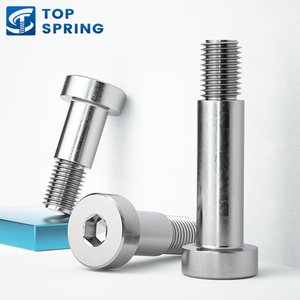



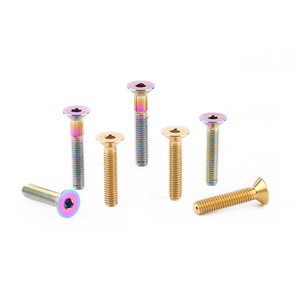
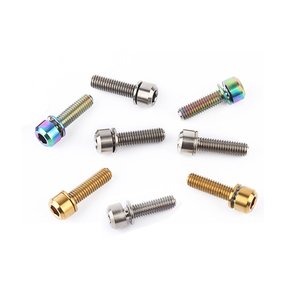

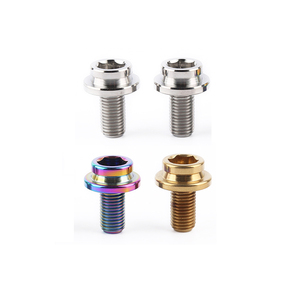








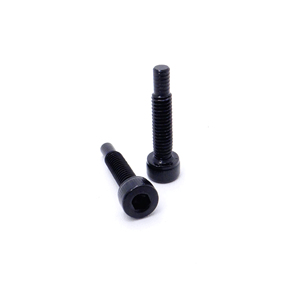











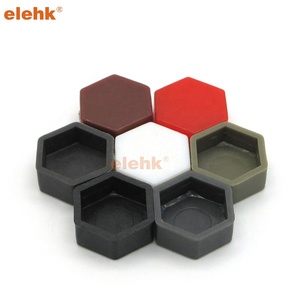





There are several types of bolt cap covers, and each type varies in material, shape, size, and purpose.
Plastic bolt caps are lightweight, inexpensive, and easy to install.
Stainless steel bolt caps are durable and corrosion-resistant, and this makes them ideal for marine and industrial applications.
These are usually developed to meet the specific needs of a particular manufacturer or seller.
Metal bolt caps are strong and provide a more securely fitted cover for bolts, especially in heavy-duty and construction applications.
These are engineered with magnetic components, which allow them to stick directly on the bolts or even retrieve tool leaves from the magnetic embedded within them.
Tapered caps are tight-fitting bolt caps that provide a smooth, nearly flush appearance.
Anodized bolt caps are used in the aerospace industry to protect fasteners and components in airplanes from corrosion, offered by weight and identification properties.
In electronics, anodized bolt covers are used to provide insulation and prevent metal parts from grounding or short-circuiting, as well as enhance the aesthetic appeal of electronic devices.
In the marine industry, anodized boat parts, including bolt caps, are used to protect fasteners from saltwater exposure, which reduces corrosion and extends the life of the vessels.
These bolt caps are applied in various automotive components, where the function of the cap is twofold: to prevent corrosion and improve the visual appeal of exposed fasteners.
Due to their lightweight and corrosion resistance, anodized bolt caps are widely used on several parts and accessories, including wheels, fenders, and frames.
Construction workers use anodized bolt caps for exposed bolts in structural applications to prevent corrosion due to exposure to outdoor elements and to offer enhanced safety by covering sharp bolt ends.
In the industrial and mechanical equipment sector, these caps are used to cover bolts on heavy machinery, hence preventing dust and debris accumulation and reducing wear.
The anodization process increases corrosion resistance, particularly in a variety of harsh environments such as industrial, marine, or outdoor.
Anodized steel bolt caps are durable and provide additional strength to the bolts, ensuring protection against mechanical stress, impacts, and general wear and tear.
Anodized finish allows a wide range of colors and finishes, which can be used for customization purposes, including branding or aesthetic appeal.
It also protects the threads and the shaft of the bolts from damage during handling and installation.
Anodized bolt covers exhibit heat resistance and are therefore suitable for applications involving extreme temperatures, including automotive and aerospace industries.
The anodized surface is harder than the underlying material, which provides increased wear on surfaces since it is particularly useful in applications requiring low friction or continual contact with other components.
These considerations can assist when making a decision regarding the purchase of anodized bolt caps.
It is crucial to ensure that the cap fits the bolt size properly since a proper fit will provide adequate protection and avoid loosening or coming off.
The anodized coating comes in a variety of colors and finishes, so the right one depends on aesthetic, functional, or branding purposes.
There are hard and regular anodizing; hard anodized bolt caps have increased durability and wear resistance.
This ensures that the bolt caps have sufficient protection against corrosion, wear, and fade, especially in high-demand environments.
The material used to make the caps is to be considered because of the common types that include aluminum, which is lightweight and corrosion-resistant.
Depending on the environment, marine [exposed to saltwater] and industrial [exposed to various chemicals] environments require anti-corrosion properties.
A1. Anodized bolt caps are mainly protective covers for bolts that have been treated through anodization; anodization is an electrochemical process that creates an oxidized layer on the bolt cap surface.
A2. These include protecting against corrosion, which adds surface hardness to the bolt cap, available in various colors, and provides insulation against electrical contact.
A3. Other than aluminum, which is the most commonly used due to its corrosion resistance, stainless steel, and plastic can also be used.
A4. Yes, anodized bolt caps are very suitable for outdoor applications because anodization enhances corrosion and UV resistance.
A5. Bolt caps can be cleaned using mild soap and water, and to avoid damage to the surface, harsh abrasives and chemicals are to be avoided.